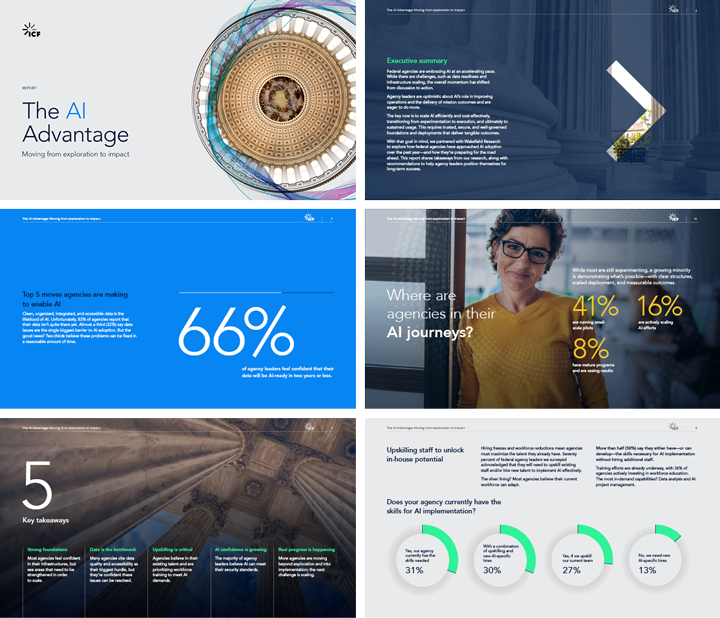
Enhancing a vital emergency preparedness resource
ICF combines technology, subject matter expertise, and knowledge sharing to serve as an “all-hazards force multiplier” for medical and public health professionals across the nation
For over 10 years, ICF has partnered with the U.S. Department of Health and Human Services (HHS) to support the Administration for Strategic Preparedness and Response’s Technical Resources, Assistance Center, and Information Exchange (ASPR TRACIE). This vital resource center provides medical and public health professionals from federal, state, local, tribal, territorial, nongovernmental, and private-sector organizations access to vetted content specific to healthcare disaster preparedness, response, and recovery.
Challenge
ASPR was created in the wake of Hurricane Katrina, which devastated the U.S. Gulf Coast in 2005. In the decade that followed, ASPR determined that their stakeholders needed a comprehensive, one-stop resource to help medical and public health stakeholders access trusted information to guide preparedness, response, recovery, and mitigation efforts.
- AI
- Cloud
- Human-centered design
- DevSecOps
- Low-code/No-code
- Scaled Agile
- Open source
Solution
ASPR teamed up with ICF to meet these challenges and in 2015, ASPR TRACIE was launched. This platform enables stakeholders to prioritize activities, make informed decisions, access free resources and training, build on shared experiences, and minimize duplication of effort.
ASPR TRACIE offers users three distinct, integrated tools:
- Online self-service technical resources searchable by keyword and functional area
- One-on-one technical support via email or phone, connecting users with preparedness experts
- A password-protected, peer-to-peer discussion board allowing users to share information and collaborate.
Over this time, ICF has continued to modernize the platform, leveraging DevSecOps, human-centered design, and cloud technology to meet evolving user needs; improve performance, reliability, and security; and ensure scalability and adaptability for future enhancements. These improvements have not only expanded ASPR TRACIE’s capabilities but also driven efficiencies in both service and cost.
More recent updates combine intelligent security monitoring with AI-powered coding assistance to create a robust and secure environment. For example, the system continuously analyzes cloud activity patterns using machine learning to detect potential threats such as suspicious logins or data leaks, triggering automated responses when needed. And developers benefit from smart coding tools that understand project context and suggest optimizations, more secure methods, and reduce manual work required.
Results

In 2024 alone, ASPR TRACIE stakeholders managed numerous concurrent emergencies, including extreme heat and weather hazards, pediatric and adult respiratory illness outbreaks, workplace violence, and mass casualty incidents. The ICF team helped create or update 44 essential resources to support their emergency response efforts on topics ranging from hazard vulnerability assessments, to burn and flooding incidents, to hospital supply disruptions. The team responded to more than 820 requests. The platform received more than 350,000 pageviews and added 900 users to the peer-to-peer exchange environment. All told, the platform earned a 99% overall satisfaction rating.
“The [updated volunteer management topic collection] is awesome,” noted a regional Medical Reserve Corps Liaison for ASPR. “This is such a valuable resource for the work we do. You just can’t beat great information that’s easy to access.”
Since 2014, ICF’s ASPR TRACIE team has created more than 550 new resources and responded to more than 12,700 requests for technical assistance. Over 12,000 medical and public health professionals have joined the peer-to-peer exchange, sharing near-real-time information with colleagues in anticipation of or response to a critical incident or public health emergency. More information about ASPR TRACIE is available in our 2024 Year in Review.
13K+
total technical assistance requests
2.3M+
total visitors to the website
1.2K+
subject matter expert cadre members
1.5M+
users received critical information
Related client stories
Related services and industries
